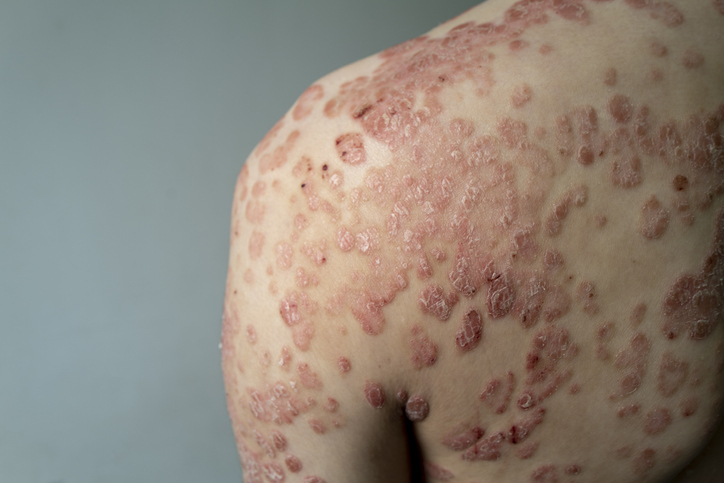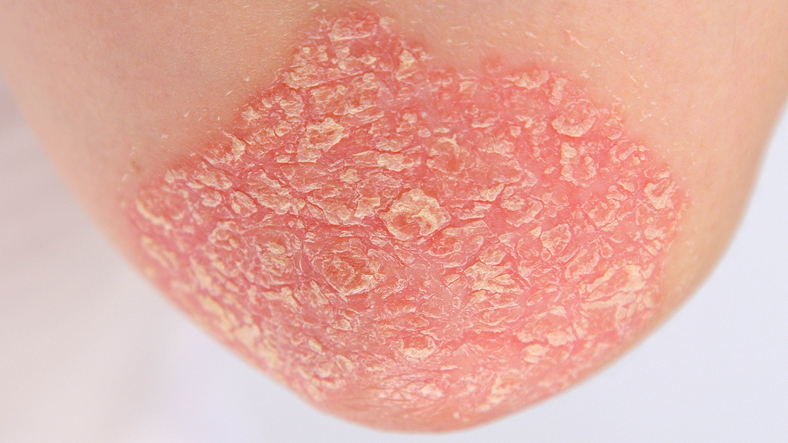Pain
Progression and Potential Complications of Psoriasis

What is psoriasis?
Psoriasis is an autoimmune disease that causes skin cells to multiply up to 10 times faster than normal. There is a wide spectrum of severity and manifestations of psoriasis, but common characteristics of most types of psoriasis include skin redness (erythema), thickening, and scaling (squamae).
Progression and complications
Progression of psoriasis is unpredictable. Some have disease that presents only one time; others have disease that comes and goes; and others experience chronically active disease that is always present. Similarly, it’s possible to have mild disease that is stable for many years or disease that quickly progresses from mild to moderate-to-severe psoriasis. Symptoms can range from pinhead-sized spots on the skin to major eruptions that cover large areas of skin. Systemic inflammation is present with mild, moderate and severe psoriasis and can lead to the following complications:
- Psoriatic arthritis
Psoriatic arthritis affects roughly 30% of patients with psoriasis. It commonly occurs 10 years after the development of skin disease; however, in some cases, psoriatic arthritis is the first and only manifestation of psoriasis. Approximately half of all patients with psoriatic arthritis experience erosive arthritis that can deform the joints. - Metabolic syndrome
Metabolic syndrome is a set of conditions that increase the chance of developing heart disease, stroke, and type 2 diabetes. These conditions include high blood pressure, high blood sugar, excess body fat, high triglycerides, high levels of LDL (“bad”) cholesterol, and low levels of HDL (“good”) cholesterol. - Cardiovascular disease
There is increasing evidence that individuals with psoriasis are at risk of cardiovascular disease as compared with the general population. The association is higher with more severe psoriasis and for those with psoriatic arthritis. Research suggests that compared to the general population, those with psoriatic arthritis may be 78% more likely to develop ischemic heart disease, 70% more likely to develop cerebrovascular disease, and 98% more likely to experience peripheral vascular events (such as a blocked vein or artery). - Malignancy psoriasis
Malignancy psoriasis is associated with an increased risk of developing certain types of cancer including colon, kidney, laryngeal, liver, lymphoma, non-Hodgkin's lymphoma, esophageal, oral, and pancreatic cancers. - Mental health issues
Mental health issues, such as depression and anxiety, may develop from dealing with psoriasis. Up to 60% of individuals with psoriasis may experience depression. - Other autoimmune diseases
Other autoimmune diseases often coexist with psoriasis. Autoimmune diseases associated with psoriasis include Crohn’s disease, ulcerative colitis, multiple sclerosis, rheumatoid arthritis, and systemic lupus erythematosus.
















